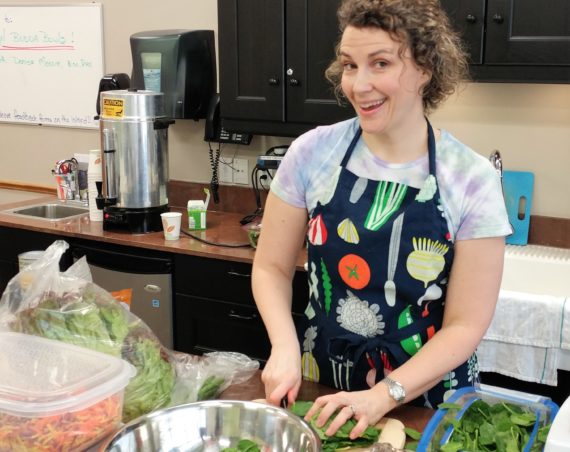You may have heard about a concept known as sustainable farming. Sustainable farming is all about responsibly taking care of the soil. While many of us may rarely think about how our food is grown, the techniques used to cultivate our food can make a big impact on our health and on our planet.
From the quality of the seeds and the soil and from the farm to our breakfast table, we wanted to learn all about organic, sustainable farming. So, we connected with the experts at One Degree Organics where working with small-scale farmers, a Non-GMO commitment, and total food transparency is at the heart of their business. Stan Smith is the Co-Founder, Co-Owner and President of One Degree Organic Foods, Silver Hills Sprouted Bakery, Little Northern Bakehouse, as well as the Abbotsford, BC retail store Sprouted Oven. His family-run business is building a legacy of healthful change and food innovation across North America.
We chatted with Stan about what food transparency is, why Non-GMO matters, the benefits of eating sprouted grains, and their current favourite non-traditional wheat.
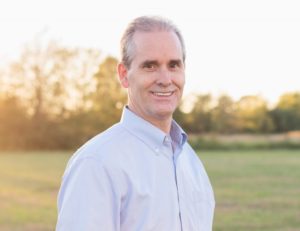
WEHL: Tell us a little about yourself and why you became interested in wellness and starting One Degree Organics.
SS: I was born in California to wonderful parents who were committed to country living. When I was very young they moved to a rural property in British Columbia, Canada. My parents were both vegetarians, and when I was a teenager, they decided to become vegan. As a result I have always been vegetarian and have been plant-based for most of my adult life. Their interest and commitment to health was my inspiration. My wife Kathy shares the same passion for health and One Degree Organic Foods has been an incredible opportunity for us to share that commitment. We’ve worked hard to ensure that we’re providing truly nutritious, sustainable products that also taste great.
WEHL: What is your philosophy on wellness?
SS: I always like to say that the best gift you can give to people is to take care of your own health. Great health allows you to give more to others and everything in life that’s enjoyable brings more pleasure if you have good health to go with it. It is important to never stop looking, never stop discovering, never stop trying to understand health, and to know everything you can about your food – how it’s grown, where it comes from – and to always have a mindset that prioritizes health.
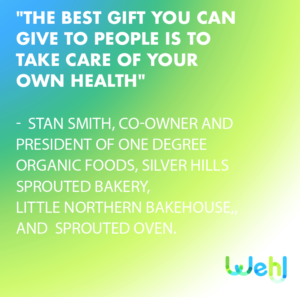
WEHL: One Degree has a strong focus on transparency – what does that mean?
SS: Total food transparency is at the heart of One Degree Organics—it is what the company was built on—and it’s a principle that is the guide for every product we make. We search for farmers who produce organic ingredients to the highest food quality standards, we travel to meet them in person and confirm their growing methods and then share their stories with our customers through a QR code link on the packaging. It allows anyone to know where the ingredients came from that are in any item we sell. We believe food transparency is the best way to bringing trust and integrity back into the food industry.
WEHL: Why do you think it’s important for people to know the farmers who’ve grown their food?
SS: We think it’s an exciting thing that while you are having breakfast you can see where each ingredient came from in your box of cereal or other One Degree products. There is so much you can learn from the farmers that help you understand more about the benefits of the ingredients in your food and it is also helpful to know why we have chosen to work with the farmers we selected.
We’re working to shift people’s focus to the quality of ingredients in their food and understanding where each one is sourced. We also want to honour the farmers since that is where food actually comes from.
WEHL: You work with small-scale farmers. Why do you do that? How do you begin to find and develop partnerships with them?
SS: We created One Degree Organic Foods to give consumers the power to meet every farmer and producer behind every ingredient they’re eating, just like a farmer’s market. Our company is still family-owned, and members of our family travel near and far to personally meet and interview the farmers and producers face to face and learn about how they grow and process their food.
It is important to us to choose family farmers or co-operatives of farmers that are responsible in their treatment of the member farmers. By personally visiting the farms, we are able to confirm certifications and growing methods firsthand and to choose farms that are using only organic inputs from plant-based soil nutrients. We set out to understand who they are and how they work to ensure they’re committed to maintaining our highest-quality sourcing standards. 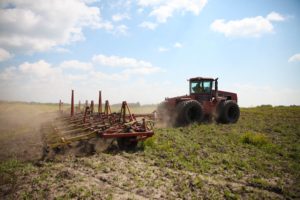 Finding and building partnerships with growers often takes a lot of time but it is a very rewarding part of our business.
Finding and building partnerships with growers often takes a lot of time but it is a very rewarding part of our business.
WEHL: Your products are Non-GMO. What does Non-GMO mean and why does it matter?
SS: In their infancy, GMOs came with an intended outcome of improved nutrition and higher crop yields, but the gene-splicing and biotechnology (genetic engineering) has shown over time to have a near-opposite effect on crops, and giant agricultural companies like Monsanto have used their GMO crops to a patent-law advantage, continuously trying to shut down small farmers who work to harvest without these herbicide-resistant seeds. Medical and scientific evidence continues to point to the fact that despite the promises of GMO seeds, they are not the answer to reducing world hunger, improving nutrition, and garnering larger yields. Yet, GMOs dominate food chains the world over.
We are committed to working with nature. Altering a plant’s genes to make it tolerant to herbicides, insecticides, drought, or freezing is simply not something that occurs in nature. This method of genetic engineering is totally different from hybrid plants that are created by natural cross-pollination. To that end, we take appropriate action in using organic ingredients, knowing our farmers personally and visiting them to see exactly how their food is produced, utilizing the knowledge and standardization available through the Non-GMO Project, and continuing to build One Degree Organics’ food line with the firm belief that you have the right to know what’s in your food.
WEHL: What does sustainable farming look like and how is it better for the environment?
SS: A sustainable farming system is one that responsibly takes care of the soil. We are careful to choose farms that use crop rotations and cover crops to add nutrients back into the soil rather than animal byproducts.
Animal agriculture is a massive contributor to environmental challenges, is generally managed in a way that causes animal suffering and most significantly can introduce toxins into the soil and crops since byproducts from non-organic animals are permitted to be used in organic farming.
Crop rotation involves choosing varieties of crops that contribute nutrients to the soil when they grow that offset what other crops may have depleted. Choosing the right cycle and growing some crops after the harvest that are tilled back into the land maintains optimum soil health. Since crop rotation helps produce more fertile soil, the farmers don’t need to use animal manure or other animal byproducts, keeping every One Degree ingredient grown with all organic, plant-based nutrients.
WEHL: You carry a number of sprouted products such as cereal, granola and oats. What are sprouted grains and how are they different?
SS: Sprouted grains are storehouses of good taste and good health. Sprouting is nature’s way of unlocking valuable nutrients, making them readily available and easily digested. Whole grains are seeds, tightly packed with vitamins, minerals, and other valuable nutrients. Sprouting makes nutrients easier for our bodies to absorb while retaining all their nutrition and fibre.
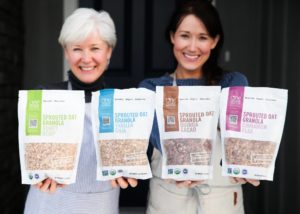
WEHL: Are you able to use sprouted wheat flour the same as you would use non-sprouted wheat flour?
SS: Yes! Sprouted flour can be substituted for non-sprouted flour 1:1, making it an easy-to-use and delicious way to optimize nutrition in your favorite recipes.
WEHL: Red Fife is Canada’s oldest wheat. What is it and how is it different from traditional wheat?
SS: Red Fife is a uniquely Canadian heritage grain. One Degree’s Red Fife, grown by farmer Bernie Ehnes in southern Alberta, is derived from the Keremeos strain that was brought to Canada from Scotland 170 years ago.
According to Farmer Bernie, “Red Fife has a different flavor compared to modern wheat, it has a different baking consistency, it’s quite an interesting crop to grow. Red Fife has been grown on this farm back in the earlier years when our grandfather and dad farmed here.” Often referred to as Faith Red Fife, it’s especially popular with consumers seeking to avoid modern hybridized wheat.
As a stone-milled whole wheat, Red Fife retains the nutritious bran, germ, and endosperm, offering B vitamins, minerals, antioxidants, fiber and protein. Grown veganically, without chemicals, or animal-based fertilizers, then sprouted to maximize nutrition, digestibility and flavor.
WEHL: What is your favourite non-traditional wheat (i.e. spelt, rye, red fife, khorasan etc.) to use right now?
SS: That’s a hard question as each one has a lot of great characteristics. Probably Khorasan is still near the top of the list for me as my mom used it in baking and it comes with great memories.
WEHL: Do you have any advice for an entrepreneur who’s interested in building an environmentally conscious business?
SS: Make sure you work for a purpose you enjoy and have a passion for. The key to success is to find opportunities to help customers, be disciplined and treat everyone with respect and kindness. We pray, hope for the best and work hard. Never give up because things get tough – they will.
Connect with One Degree Organics:
- Web: www.onedegreeorganics.com
- Email: [email protected]
- Phone: (855) VEGANIC (834-2642)
We invite you to join our all-in-one healthy lifestyle app at Wehl.com!


